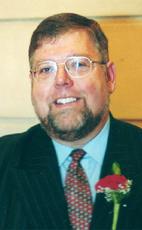Mr. Speaker, I believe that all Canadians should take great pride in the work performed by the men and women of Canada's air force at home and abroad. Every day Canadian forces aircraft operate throughout the country and around the world performing a variety of demanding missions.
During their mission in East Timor, our Hercules aircraft completed some 130 operational missions carrying more than two million pounds of equipment and some 2,200 personnel. They have also airlifted humanitarian aid to various regions of the world. Canadians also appreciated the valuable contributions of the Hercules during the Manitoba flood and the great ice storm.
Our Labrador helicopters continue to conduct dangerous search and rescue operations and save thousands of lives every year. They will soon be replaced with state of the art Cormorant helicopters.
During the recent NATO air campaign in Yugoslavia, the CF-18s flew more than 670 sorties striking at a variety of military targets.
In the last few years the government has also taken significant steps to ensure the air force has the tools it needs to do its job. In addition to the Cormorant, the minister has announced the beginning of modernization of programs for both the Aurora maritime patrol aircraft and the CF-18 aircraft.
I am also very pleased to report that the Auroras, which until mid-November were restricted to unpressurized flights, are now almost all authorized to fly at a new altitude of over 10,000 feet. This comes after detailed inspections confirming that these planes can carry out pressurized flights in complete safety.
As for the Sea Kings, the minister has made it very clear, on more than one occasion, that they need to be replaced. In fact, the minister confirmed several times in the House that new maritime helicopters were the number one equipment priority. We are therefore in the process of developing an acquisition strategy.
These initiatives will help ensure that Canada's airforce can continue to serve all Canadians from one end of the country to the other and will make it possible to continue to interoperate effectively with our allies.

